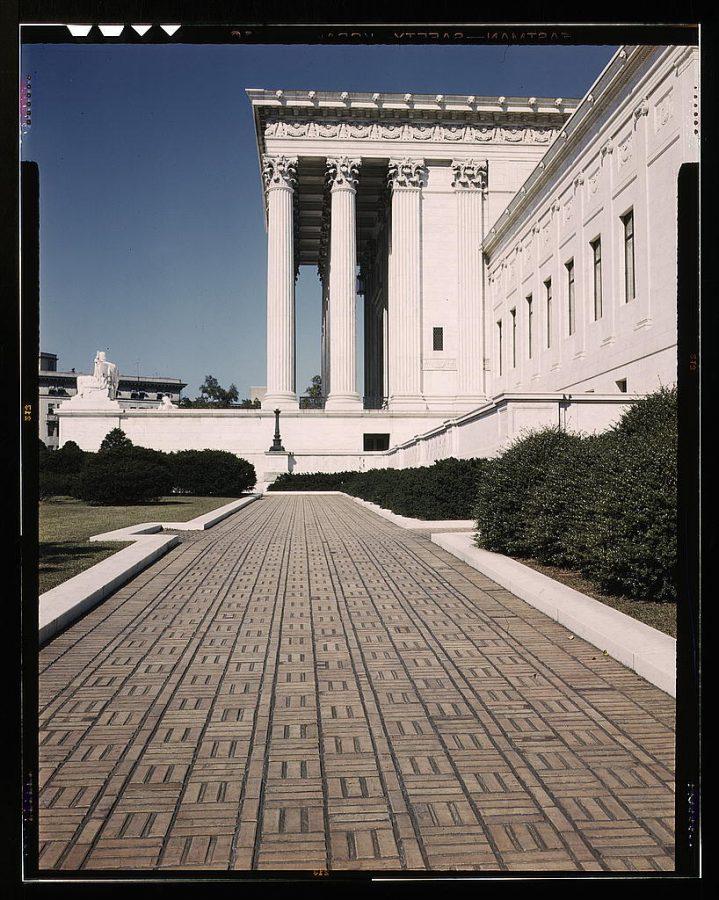There has been of late, and there will continue to be, discussion of the Supreme Court’s decisions and momentum moving forward. One of the underlying questions is whether any of the elder Justices will be stepping down before the end of President Obama’s term, most notably Justice Ruth Bader Ginsburg. Many have discussed whether Ginsburg will strategically retire before the end of Obama’s administration, so that the president can appoint another likely liberal-minded candidate. But while it is practical to discuss the Supreme Court in terms of its political alignments, is it the way most conversations regarding its significance should be framed? Or should Justices be held to a standard of legal reasoning rather than politics?
It is true that the Supreme Court decisions can not only make or break individual laws in question, but can also set precedents, which may prevent the issues from being addressed in a similar manner in the future. But the Supreme Court differs from Congress and the executive branch in that it adheres to a standard other than politics or public opinion. The Constitution and laws are generally considered to be unique and transcendent of beliefs or opinions. The Supreme Court must consider an issue based on what the Constitution says, rather than what they personally believe in regards to the potential controversy of the current case.
There is, of course, the major caveat of actually interpreting the Constitution. In this, Justices throughout history have differed wildly, with some believing that only the explicit text of the document can be used to defend or oppose a case or law, while others have claimed that the words and structure of the Constitution must be interpreted to include provisions that are not expressly stated. Justices will generally fall along a spectrum of how interpretive they are of the Constitution, although it is worth noting that in some cases a Justice may be more lenient with one amendment and stricter in their understanding of another. In some cases, a Justice may make a decision based on political ideology, but it is worth noting that this choice is often reasoned with, and informed by their Constitutional ideology, defined by where they sit on a theoretical spectrum of interpretation.
One would review all of this information, and could easily understand why the Supreme Court is often viewed as a political entity. Except that the Court, contrary to popular belief and claim, is still subject to the concept of legal reasoning. They cannot just make law — they must find logic within the Constitution that either supports one side or the other. This is where the Justices can diverge from the traditional understanding of politics, and subject themselves to a different line of reasoning. A Supreme Court Justice should not just be a lawyer that the current administration knows will support whatever political ideology to which they subscribe.
It is true that Justices can, effectively, find reasons within the Constitution for just about anything, but in most cases, their legal reasoning does play a part in the decisions, more so than many people may realize. One must also consider that the Supreme Court tries a majority of cases that have no political ramifications, but often require an exceptional understanding of the law to make a good decision on behalf of that specific case, and any future circumstance, which may potentially benefit from that precedent. If one does not possess good reasoning skills, they could potentially set a dangerously vague precedent, which could open the floodgates for cases the writer never even considered may be affected.
There have been a great number of complaints over the Supreme Court’s political alignment, which more or less boil down to “These people are terrible because they don’t do what I want them to do.” In any other political body, that would generally be enough, even if shortsighted, for some kind of argument. But the Supreme Court, and law in general, operates on a level beyond just what the people practicing it want. As citizens, we should not just allow the debate over the next Supreme Court Justices to be based entirely on whether they are considered liberal or conservative. It is certainly something to keep in mind, but it is far from the only defining characteristic a Justice should possess. A clear history of good reasoning and logical arguments, and even precedents, should be the marks of a Supreme Court Justice. In any other political sphere, one need only be popular to be successful. A Justice should be smart, beyond all else.
Photo courtesy of Flickr: https://www.flickr.com/photos/library_of_congress/2179917348/in/photolist-4jCDtS-4jCDwJ-6DBcmU-odfVC3-odgNGg-odgNPk-ouKsMH-ie7F1c-odfz3N-osHyDQ-odfA1E-ouxp1s-otsmwN-odZn7C-oe1v5r-ovd34B-oxf5Nk-owRrGa-ovXd8D-ov6C1H-oeJL3E-odAE8C-ouct49-odB2Uc-odAFAs-oxZ7x6-ouTxpb-odBVdT-oeKrEK-ov6CtB-oeJAzx-ow2dWC-odB2qr-oucsRq-ouPmoi-oucrSG-ov4UAY-4ibmAW-ba9zNp-oeRbqC-owmSNH-oujfaj-4i7ftx-7hKL2i-oeRmQV-od8hBV-od8mPG-osA1C9-ow4X4g-odr1kR/












































































































